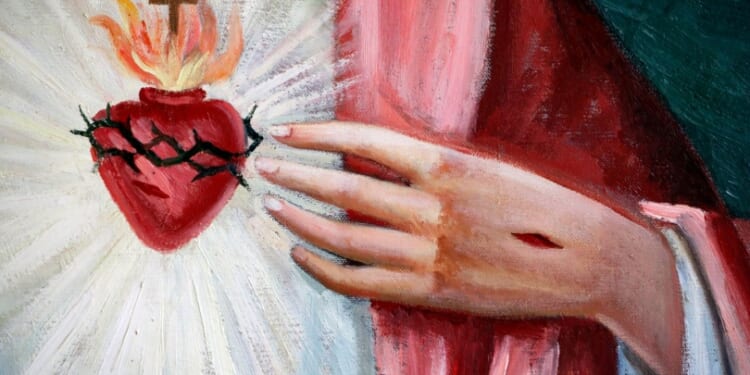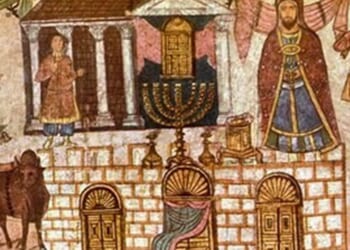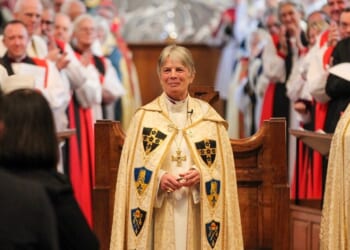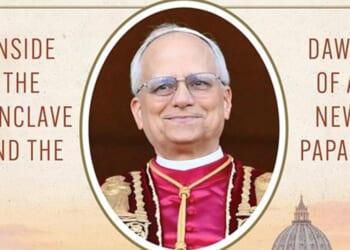(LifeSiteNews) — A French mayor’s ban of a Sacred Heart of Jesus film showing has been condemned by a court as “illegal” and ordered remedied by a rescheduling of the film.
Marseille mayor Benoît Payan hastened to cancel the screening of the film Sacred Heart: His Reign Will Have No End at the city-owned Château de la Buzine just an hour before it was to be shown, according to The European Conservative. The city reportedly argued that airing a religious film in a state venue was “an attack on secularism” and violated France’s law separating church and state.
“The decision not to hold this screening in a municipal facility is in strict accordance with the law. A public facility cannot host screenings that, by their nature and content, are of a religious nature,” the city stated in a press release.
The city did not cite a specific French law, although several outlets have reported that it was referring to the country’s 1905 law on the separation of church and state.
Stéphane Ravier, the director and a conservative senator, filed an emergency appeal on the heels of the ban to reverse the city’s decision, condemning it as enacted on “the false pretense of selective secularism.”
The court ruled in their favor, finding that the mayor’s ban “constituted a serious and manifestly illegal violation of freedom of expression, freedom of artistic creation, and freedom of artistic distribution.”
“The mere screening of a film that may be considered religious in nature in a municipally-run cinema does not, in itself, violate the principle of secularism, since such screening does not express recognition of a religion by the municipality or indicate a religious preference on its part,” the Marseille court determined.
At least several outlets have pointed out the mayor’s decision is just one example of the French government’s anti-Christian, pro-Muslim bias. Mediatransports, the advertising agency for the RATP (Paris transport authority), and the SNCF (national railway company), refused to display promotional posters for the film, deeming it too “confessional and proselytizing” and therefore “incompatible with the principle of public service neutrality.”
However, the Paris metro advertises Islamic charities every year, and Sacred Heart film director Steven Gunnell has highlighted the hypocrisy of airing posters for anti-Christian films such as The Nun while rejecting Sacré-Cœur.
Steven James Gunnell témoigne après l’interdiction de son film «Sacré Coeur» : «J’ai pété un câble hier soir, je ne supporte plus qu’on censure le christianisme en France», dans #MorandiniLive pic.twitter.com/BT7aIpggTX
— CNEWS (@CNEWS) October 23, 2025
Sacré-Cœur comes from an unexpected director: Alliage, the son of a British rocker and the former singer of a popular French boy band. After a rough patch, during which he fell into alcoholism, he converted to Catholicism, and devoted his creative career to music inspired by his faith.
The film tells the story of the apparitions of Jesus Christ to St. Marguerite-Marie Alacoque in 1675, during which He revealed to her His Sacred Heart and asked her to spread this devotion. “Here is this heart who has loved the world so much and who has received only contempt and ingratitude in return,” Gunnell explained.
“The devotion of love to the heart of Jesus, while in France it was disintegrating, it returned to France through foreign missionaries who tell us, ‘You lost this along the way. We’re bringing it back to you,” he continued.
“I can no longer stand that we are censored, and that Christianity is censored in France by any media,” Gunnell said.
The devotion to the Sacred Heart of Jesus has special significance for Marseille; Bishop Henri François Xavier de Belsunce consecrated the city to the Sacred Heart during the Great Plague of 1720.
The devotion is especially important to France, not only because its proponent was a French nun but because in June 1689, Christ asked King Louis IV through St. Margaret Mary Alacoque to consecrate himself and the country to His Sacred Heart. Louis IV refused, and the successive kings of France delayed the consecration, culminating in the outbreak 100 years later, in 1789, of the French Revolution, which waged war against the Catholic Church in France and executed thousands of bishops, priests, religious, and lay Catholics.














